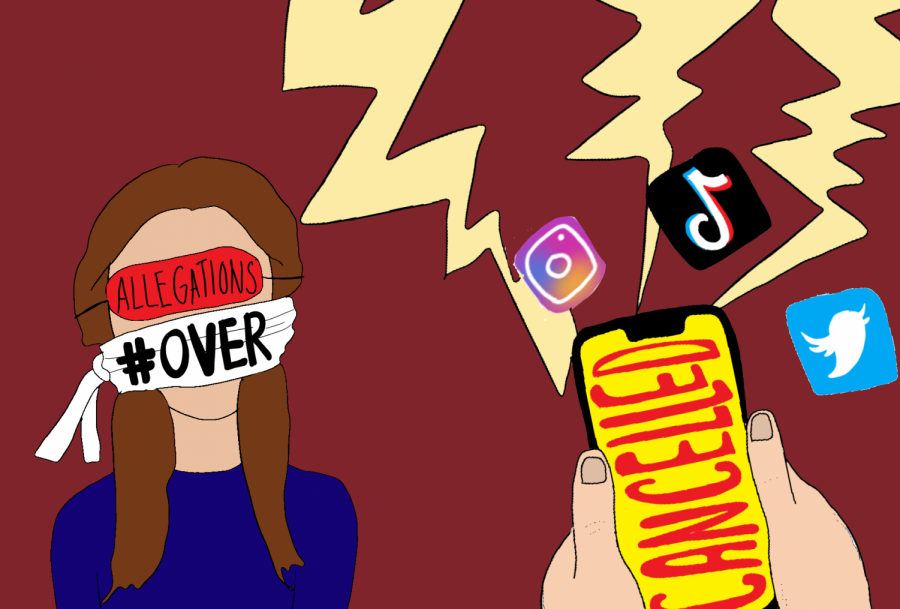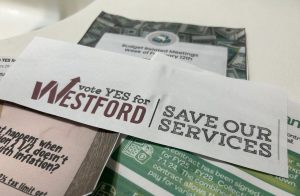Cancel “cancel culture”
Cancel culture has negatively affected many people on social media.
March 28, 2021
A single misguided tweet, video, or post has the potential to be “canceled”, a term that describes the public shame of those who commit questionable actions or hold dissenting beliefs. Nowadays, people have been even more careful about expressing what they truly believe want to say on an issue in fear of it being problematic. Not only does canceling sometimes cause the cancellers to exaggerate the truth, but it also isn’t necessarily more effective than its alternatives, and it can be detrimental to the canceled person’s mental health.
Case in point: J.K. Rowling, author of the beloved Harry Potter series, was canceled in June 2020 for her controversial tweets about the transgender community. Whether or not her opinions are justified isn’t the question. Rather, was the huge backlash that ensued as a result of her tweets actually effective in changing her views on the transgender community?
At first glance, she seemed to quiet down after the initial tweets, but only three months later, on September 15, 2020, she published Troubled Blood under the pseudonym Robert Galbraith (Kolirin). A quick Google search finds that the plot features a male serial killer who dresses as a woman when performing his murderous deeds, thus letting him lure his victims into a false sense of security. Clearly, the outraged tweets from cancelers didn’t change her mind but instead radicalized her views, so much so that she actually wrote a book revolving around the increasingly common “bad man in a dress” trope (Grady).
The term “cancel culture” in itself is misleading. I can cancel an appointment, dinner date, or subscription; real, raw, multi-faceted human beings should be out of the question. As seemingly far removed as celebrities are from us, they are people too. Therefore, when people are mercilessly attacked over something they’ve said, done, or posted, they aren’t just being “canceled”— they’re being publicly shamed, humiliated, and possibly emotionally abused.
Mary Purdie, an artist who was falsely accused of plagiarism and canceled later, as a result, says in an article written by Leslie Zukor that her “mental health suffered unquantifiable damage because of the vitriol[. . .] Purdie still deals with ‘the residual trauma’” (Zukor)
At a certain point, a line has to be drawn; how far will people go to achieve social justice? Should people be held accountable for the insensitive things they’ve done in the past? Yes. Should they be the recipient of so many hashtags and inflammatory posts that they could compromise their job and wellbeing? No. Of course, this depends on the situation; Harvey Weinstein, the infamous former movie producer who was canceled by many on social media for his various abhorrent sex crimes (Jacobs), rightfully deserved public shame and the loss of his platform.
Universally, we can all agree that our past mistakes don’t define who we are as people today. However, the very essence of cancel culture would disagree, as it has a mindset of expecting people to never slip up. It can even be deemed “toxic for our mental health because [cancel culture] doesn’t allow us to be human and make mistakes. . . [or learn] how to give people 2nd chances and forgive them” (Douglas).
Cancel culture puts someone’s mistake under an even broader spotlight and often deems perhaps sincere apologies as “fake” or “phony”. At the Obama Foundation summit in 2019, former president Barack Obama explains that “there is this sense sometimes that the way of me making change is to be as judgmental as possible about other people. . . If I tweet or hashtag about how you didn’t do something right. . . that’s not activism. That’s not bringing about change, you know. If all you’re doing is casting stones, you’re probably not going to get that far” (Bostock).
Obama is right. Activism that actually causes change is more than slandering hashtags and a bombardment of tweets— it’s hard work including, but not limited to, protests, lawsuits, lobbying, petitions, or strikes. Calling someone out online with an angry mob of Twitter users to back you up doesn’t cut it, and has proved to harm some people’s mental health. If we continue to embark on this downward spiral and cancel
any views that oppose ours, our society will become increasingly intolerant and narrow-minded, the very traits that cancel culture tries to combat.


















